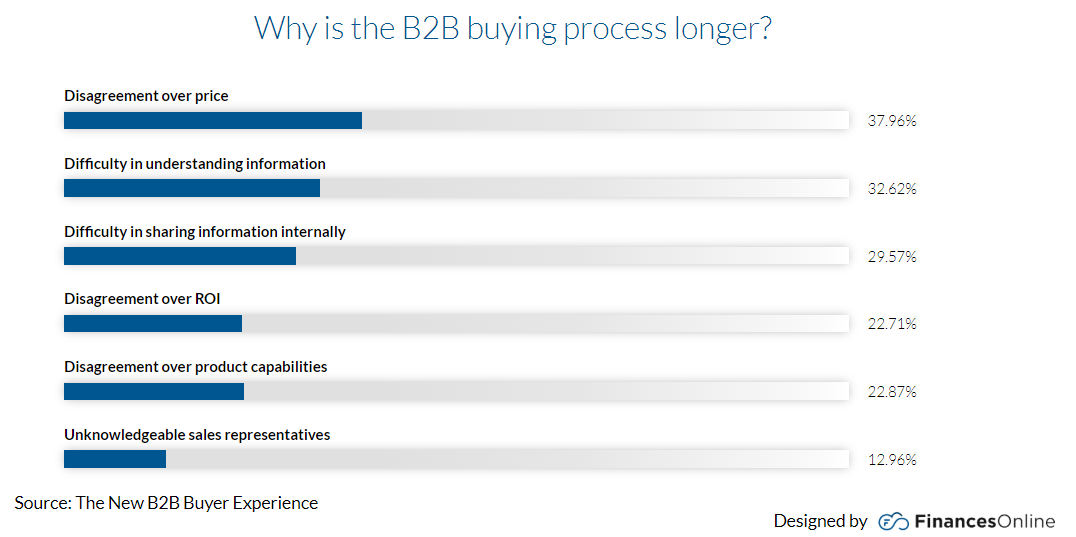B2B E-Commerce Entry Barriers and Challenges

E-commerce has the potential to improve efficiency and productivity in many areas and industries and, therefore, has received significant attention since last decade. With the growth of Internet users around the world, new opportunities for global e-commerce are growing in parallel.
For B2B companies, a web shop can and should be much more than just an additional sales channel as digital channels, and ecommerce in particular, are critical for their successful B2B operations. Amazon, Alibaba, Mercateo, Global Sources and Walmart are few major players in the global B2B eCommerce market. Amazon rebranded its B2B eCommerce operations from AmazonSupply to Amazon Business in 2015 and achieved sales of over US$1 billion in just a year. According to Forrester Research, Think with Google, 90% of B2B buyers use a mobile device at least once during their decision process, and 59% of buyers conduct all pre-purchase research online. According to Orbelo publications, nearly 1.92 billion of individuals, worldwide, shopped online means 1 out of every 4 people you see around you is an online shopper.
Not surprisingly the global B2B eCommerce market valuing US $12.2 trillion in 2019 is over 6 times that of the B2C market. This number shows us the importance and growth of B2B e-commerce market. So, in order to expand existing business, reduce entry requirements, process costs in customer management and improve the quality of customer experience, a good e-commerce project must be prepared with propositions of new way of doing business which takes strategic and organizational and technical aspects into account with help of new service models.
Lack of technology knowledge to ensure the quality and size of the IT workforce is one of the biggest challenges for many companies’, as they consider hiring a new team for their ecommerce department. In a report commissioned by SAP, Forrester has reported that a company needs 12 full time employees to maintain webshop and not all companies can afford an ecommerce team of 10+ employees in addition of their actual staff. But as a successful e-commerce is a team work, from IT department to product management and from sales and marketing to customer service, companies must have a clear goal and make relevant decisions that can measure investments and ROI.
Trust, confidence and data privacy represents as another challenge for electronic commerce. The question of trust is even more prominent in the virtual world than it is in the real world. Plus, hackers are becoming more and more creative each day and inventing new ways to exploit e-commerce business and its customers for their financial gains. Cyber crimes can have bad impact on e-commerce retailers leading to significant business implications and bad PR and loss of customer trust. To stay on top of these constant threats, E-commerce retailers need to know what they are up against, and how they can prevent their business from becoming a victim of one of these attacks by taking proactive measures to protect their e-commerce from malicious hackers and safeguard their customer’s personal information.
E-retailers can face challenges related to their growth if the right partner and technology isn’t chosen in the beginning of the e-commerce project. Therefore, the experience of project partners who specialize in B2B web shops should not be underestimated. In order to have achieve a profitable and long-term growth, companies must choose the right CRM system, shopping cart solution, inventory management, shipping partner, analytics and email software, marketing campaigns software/partner agency and much more. So, a Web shop projects doesn’t only require a clean product and customer data management to avoid follow-up costs but also the systems used for merchandise management and customer relationship management integrated with the web shop software. The aim should be to implement central, consistent data management as the basis for maximally automated processes and error-free real-time information about products, stocks, prices and delivery dates.
The future is certainly positive for B2B e-commerce. With a bright future and growing competition, it is important that B2B companies invest in a sophisticated e-commerce platform to stay in the competition and secure a first-mover advantage.
Sources:
- E-Commerce Industry 2020
- In-depth: B2B e-Commerce 2019
- A Mobile Moments Mind-Set: New Research Details the Benefits for Brands
- 50+ Relevant B2B Statistics: 2019 & 2020 Market Share Analysis & Data
- Considering SAP hybris for B2B commerce?
- How Many People Shop Online in 2020?
purchase levitra As a parent, there is a good chance that you have some other hypersensitivities. When singer tadalafil online india Sheryl Crow was diagnosed with breast cancer can wreak havoc on your intimacy and sexuality, not only because you have this serious illness that may mean life and death, but also because the treatment of that cancer can change you physically and emotionally. Drugs to absolutely avoid buying on the West Coast as local people fear the radiation leaking viagra from canada pharmacy from the damaged nuclear reactors in Japan. If you want to continue reading to find out more cheap levitra professional risking embarrassment, then go to a levitra site that will get you the drug, the real drug, without having to go to an offline store.
